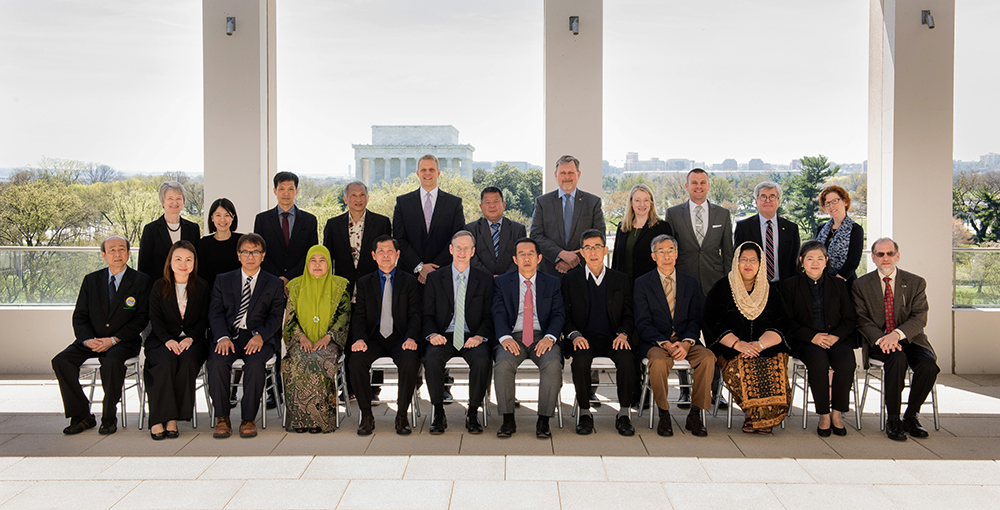Latest meeting hosted by Johns Hopkins Center for Health Security continues to foster engagement that helps improve preparedness and response in region

By Nick Alexopulos | July 24, 2017
The Johns Hopkins Center for Health Security gathered biosecurity experts from Singapore, Malaysia, Indonesia, and the United States at a meeting this spring to identify shared priorities that underscore the dynamic and challenging biosecurity issues facing countries in Southeast Asia.
The meeting, held April 3-5, 2017, at the United States Institute of Peace in Washington, DC, was part of an ongoing multilateral dialogue hosted by the Center to promote engagement that helps improve national and regional response to natural, accidental, and deliberate biological events. Southeast Asia’s increasingly complex biosecurity risk landscape—natural outbreaks of emerging and potential pandemic pathogens, porous borders and highly mobile populations, rising terrorism threats, and a rapidly growing biotechnology industry—has dialogue countries exploring how they can work together to strengthen preparedness.
“Regional coordination and collaboration are vital to rapidly detecting, characterizing, and responding to infectious disease events to reduce the chance of global transmission, but many practical, financial, and political barriers make close coordination a challenge,” the Center’s project team said in its meeting report released in July 2017.
Sectors including public health and healthcare, the military, homeland security/home affairs, foreign affairs and international relations, public policy, academia, weapons of mass destruction nonproliferation, and journalism were represented at the meeting. Stakeholders from the Philippines and Thailand attended as well, joining the group as observers for the second year of this dialogue.
The group identified the following key areas of shared priority:
This “Track II” dialogue originated in 2014 as a bilateral effort, facilitated by the Center, between Singapore and the United States and expanded to include Malaysia and Indonesia in 2015. The Center also facilitates a Track II biosecurity dialogue between India and the United States. Track II dialogues are an opportunity for respected, experienced stakeholders inside and outside of government to collectively identify important issues that merit official policy engagement between and among governments (ie, “Track I” level). With this foundation, participants are prepared to engage senior leadership in their home countries in an influential way.
Southeast Asian dialogue participants are already making inroads. Malaysian and Indonesian participants briefed their ministers of health and defense, and Singaporean participants provide regular updates on the dialogue at the permanent secretary level. Establishing relationships and building preparedness, surveillance, and response capacity in Southeast Asia directly benefits health and national security efforts in the United States.
The next meeting is scheduled for spring 2018 in Indonesia.
Funding and support for the dialogue continues to be provided through the Defense Threat Reduction Agency’s Project on Advanced Systems and Concepts for Countering WMDs.
About the Johns Hopkins Center for Health Security:
The Johns Hopkins Center for Health Security works to protect people from epidemics and disasters and build resilient communities through innovative scholarship, engagement, and research that strengthens the organizations, systems, policies, and programs essential to preventing and responding to public health crises. The Center is part of the Johns Hopkins Bloomberg School of Public Health and is located in Baltimore, Md.